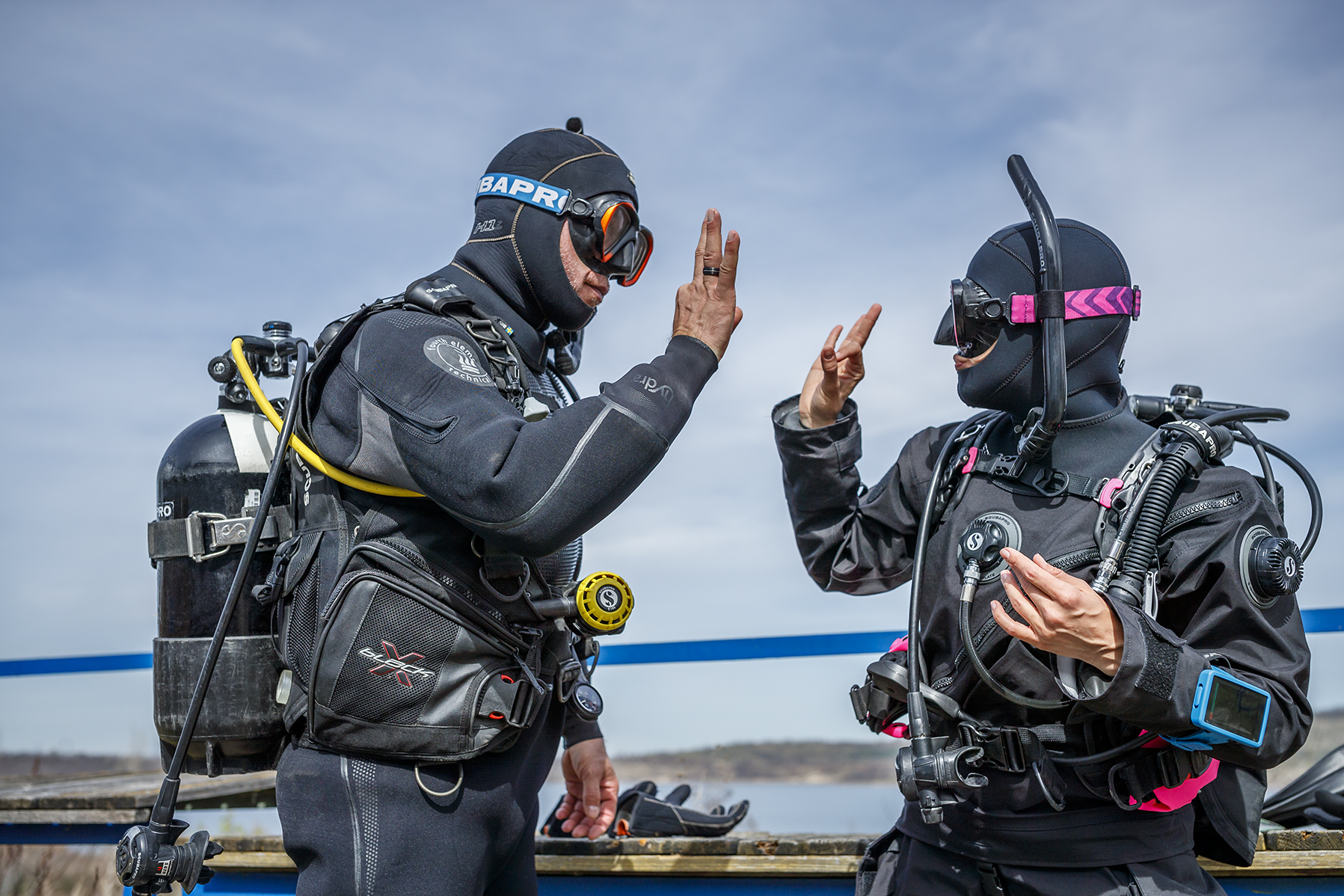One thing that draws many people to diving is the social aspect. PADI Dive Centers and Resorts, PADI Club and PADI AWARE plug us into a social network interlaced with events, travel and adventure, making it easy to meet, interact with and do things with interesting people who share our passion for diving and the underwater world. Few recreations offer so many ways to make new friends and do things with them. If you’re an extrovert, this aspect of diving is a good fit for you.
But, that may not be part of diving’s appeal to you, and if so, you’re not alone. In fact, many of the most skilled, committed divers are introverts – people who (among other qualities) prefer more solitude and smaller groups. Not to be confused with loners (although there is some overlap). People with introvert characteristics include some of history’s most famous figures. According to Inc., Albert Einstein, Sir Isaac Newton, Eleanor Roosevelt, Abraham Lincoln, Mahatma Gandhi, Michael Jordan and Dr. Seus were all introverts, and the list goes on. So, if you are one, you’re in good company.
It may sound surprising considering all the attention given to diving’s social aspects, but diving fits well with introvert characteristics and preferences. For one, introverts tend to prefer relative solitude, quiet settings and small groups – and that’s exactly what they find underwater after splashing with a couple buddies, regardless of how crowded the boat was.
Introverts also tend to be self-aware; deep thought and contemplation in relative solitude recharges them. Again, even with your buddy there, that’s what you experience on most dives. The fact we can’t talk apart from hand signals (without full face masks and comm gear) enhances this. Among other benefits of being one, introverts tend to be creative, perform well academically and make strong leaders – all of which match well with many aspects of diving. Think underwater imaging, tec dive theory and planning, and becoming a divemaster/instructor just to name three off the top of the head.

According to PositivePsychology.com, introverted personalities tend to be more introspective, and as time allows, deliberate more before making a decision and acting. In other words, they stop, think and then act. Sound familiar? They tend to be detailed planners, which explains why, as some note, that cave divers tend to be introverts, and it would be reasonable to conjecture that this applies to tec diving more broadly. Psychologists say that “extreme” sports enthusiasts tend to not be thrill seekers, but rather calculating thinkers who carefully deliberate and plan – introvert characteristics.
Few introverts fit the stereotype of a shy, quiet and quasi-socially dysfunctional person. Introvert personalities are often talkative, do well in big groups (even though that is not their preference) and have no people anxiety issues. They are not antisocial and often have wide social networks, with a small “inner” circle of long-standing, very close friends.
This isn’t surprising when we consider that, as PositivePsychology.com reports, like many aspects of human personality, extrovert-introvert is a spectrum, with most of us (68% according to some data) ambiverts falling somewhere between the extremes. In other words, most of us are introverts and extroverts, at least in some ways, some of the time, and diving fits well with both extremes and in between.
Considering all this, don’t be surprised if you find yourself diving with someone who loves the crowded dive boat while you prefer the solitude underwater, or vice versa. Diving is a good fit for both. Bringing different personality types together like this is just one more way that diving unites us as Ocean Torchbearers seeking adventure and saving the ocean together.
Good diving,
Dr. Drew Richardson
PADI President & CEO
Share This